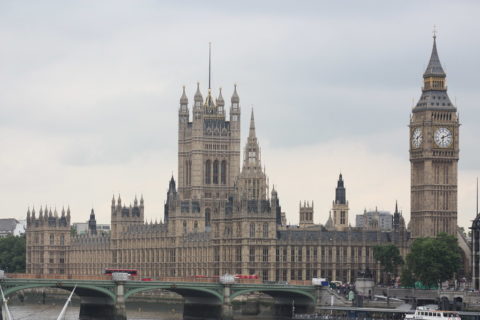Sam Ashworth-Hayes is writing here about the British Conservative party, but just swap out the names and it’s equally applicable to the Canadian equivalent, and very likely true for the rest of the western world:

“Palace of Westminster”by michaelhenley is licensed under CC BY-NC-SA 2.0
The Conservative party is trapped in a nightmare of its own making. Number 10 is rocked by scandals, support in the polls is plummeting, the Northern Ireland Protocol (Chekhov’s car bomb) waits patiently for its return to the newscycle. As with every good nightmare, there is the sense of unease that something remains undone.
That something would be “conserving”. Set aside economic policy, where the Conservatives and Labour are still just about separable — although the new interest in higher taxes, spending and regulation is rapidly eroding this gap — and judge the period on the social axis: same-sex marriage, net migration at record highs, the march of progressive ideas through academia, business and press and into government speeches. You could be forgiven for thinking that Labour won the 2010 election, and every bout subsequent.
Why is that the Conservative party governs in such a fundamentally unconservative way? Part of the issue is that the average Conservative MP is, on social issues, basically indistinguishable from the average Labour voter, while the average Labour MP is to the left even of this. The centre of gravity in Parliament is well to the left of the general population.
A second part of the answer — and a partial cause of the first — is that the infrastructure of British politics is not designed for the right. When Michael Gove and his then-Special Advisor Dominic Cummings attempted to shake up the English education system in 2014, they found themselves publicly at war with what they termed “the Blob”: an amorphous conglomerate of civil servants, academics and unions that acted to gum up change and ensure stasis in the interests of its members. Rightwards reform is received as violent revolution, whilst the constant leftwards drift goes unremarked and unchallenged.
When Cummings made his way to Number 10, so did the concept of the Blob, expanded to include the BBC, various quangos, much of Whitehall and what is sometimes called “civil society”. The example of hate crime policy is illustrative of the general idea. The concept is not dissimilar to Curtis Yarvin’s “Cathedral”, or the Trumpian “deep state”. Critics of such accusations point out, not unreasonably, that coordinating so many constituent parts would be almost impossible — but this misses the point entirely. The purpose of a system is what it does, and individual elements responding to an ecosystem of incentives that produce given results can act in a remarkably coordinated way, when those incentives point in the same direction.



